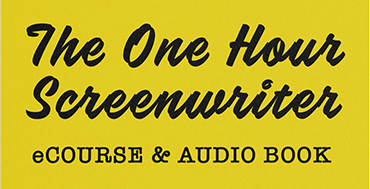War Horse – Spielberg Loses His Way


The film is beautifully shot but is low on emotional impact and, strangely, low on sacrifice. Both the boy and the horse survive by a serious of amazing and miraculous coincidences. A mediocre script in even the hand of a master director pumped up by an overly emotional score still makes a mediocre movie.
How did War Horse go so wrong?
What the main character in a movie wants is a clear and simple goal. It is something that directly benefits the protagonist that he or she can physically have or obtain. It is concrete. It is specific. It is the finite object of the character’s personal desire. In War Horse the boy’s want or goal is to find the horse and bring him home. To obtain the want, however, the character must abandon the need. That personal conflict is the essence of good drama.
What the character needs is an inner ache or yearning that the character is unaware of, denies, suppresses or ignores. It is a deeper, more abstract or intangible human longing. It is not physical or concrete. It is an emotional or spiritual urge or inner call to live up to one’s higher nature. For example: to stand up for one’s beliefs, to become a better parent, to forgive another, to act with integrity, to find one’s faith, to become more altruistic, to be a better friend, to face the truth, to love unselfishly, etc.
To embrace the need, the character must abandon the specific goal (or object of desire) and address more fundamental and far-reaching human concern. One of the most common problems with scripts that don’t work is the lack of a clear and specific want vs. a deep and powerful inner longing.
That is the case in War Horse. There is plenty of external conflict in the family’s poverty and the horrors of war. There is a good amount of relationship conflict– different people in the story clash about all sorts of things. But there is no inner conflict. There is nothing the boy needs to over come in himself in order to succeed. He is as plucky, courageous, determined and resourceful in the beginning of the film as he is at the end of the film.
It’s astonishing that in a film about war there is very little sacrifice for the good of others. The boy is not changed by his experiences and no one else is much changed either. The relentlessly upbeat ending is ridiculous in the face of the devastation of “The Great War” which so profoundly changed everyone and everything in Europe.
What the main character wants pulls us through the story. The need draws us deeper into or inside the character. If this bedrock conflict isn’t clear the script won’t add up to very much. Unfortunately, this is the case in War Horse.



Create a visual map for a character’s emotional journey. Pull stories from character rather from rote story structure beats. Some of the largest international media companies, use this in story and character development.


A clear concise guide for writers and producers to have by their side as they embark on a project. It gives a really vital reminder of what is key for story success.

No comment yet, add your voice below!